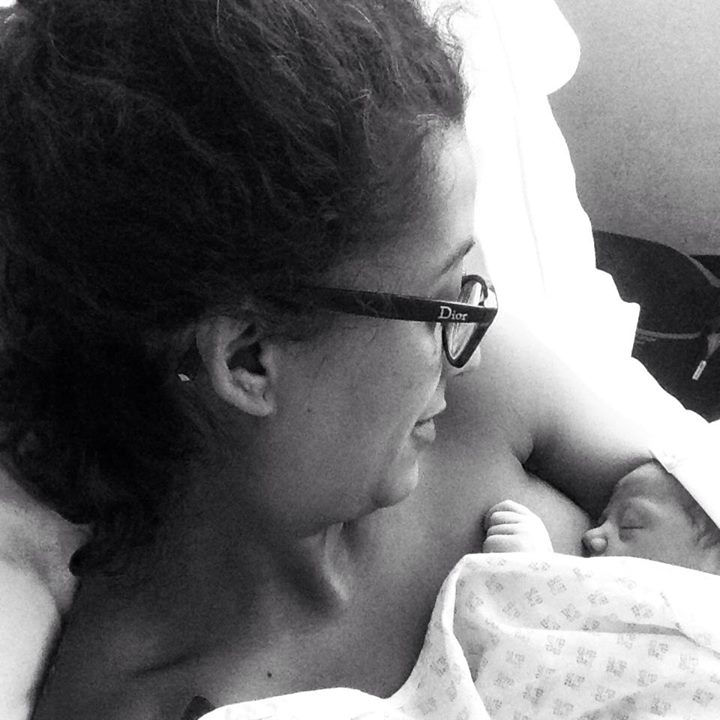Why Parents should sleep-train their kids?
- Magda Dearth
- Mar 23, 2017
- 5 min read

This article is dedicated to Parents, and why sleep-train their child should be a priority for them first.
What is sleep?
We sleep for about a third of our lives, and while we do, our body relax to respond less and less the outside world. Fortunately, and unfortunately, we all know that it is an easily reversible world ;) but to resume, sleeping is a vital function to keep us healthy and Sane on top of ensuring us a good life balance.
About the physiology and Psychology of Sleep, few things to know:
Circadian Sleep Rhythms: are physiological and behavioural changes in the body that occur on roughly 24h cycle. They are governed by natural factors within the body, but they are also affected by signals from the environments. The most noticeable feature of circadian rhythms is the sleep-awake cycle.
Abnormal circadian rhythms: have been associated with various medical conditions including obesity, diabetes, depression, bipolar disorder and seasonal affective disorder.
Sleep cycles: are important to know about, they are periods of active and inactive sleep, where a sleep cycle run for approximately 90mn for adults and 40mn for babies.
Melatonin: is the main hormone that helps control sleep-wake cycles. The body had its own internal clock that controls the natural cycle of sleeping and waking hours. Normally, melatonin levels begin to rise in the mid to late evening, remains high for most of the night and then drop in the early morning hours.
So Natural light affects how much melatonin the body produces. During the shorter days of winter, our body may produce it either earlier or later in the day than usual. This change explains the Seasonal Affective Disorder (SAD) and winter depression that we are seeing more and more often.
Now that you know a little bit more about sleep and how it can be affected, let’s talk about parents with young children who do not sleep at night.
It is important to understand Parents – and especially New parents:
Following the birth of an infant, parents are physically, mentally and physically exhausted. They constantly wake up at night the first few months, they don’t automatically understand the cries of their baby and on top of everything their couple life gets totally disrupted. It can become a confusing time where they feel “disappointed” because this new life is not what they were expecting, or because the bond isn’t as strong as they had hoped.
So new parents have to face a lot of responsibilities that they have not really been prepared for. The lack of sleep and lack of support, bring them to a “burn out” pretty quickly, especially Mothers who keeps assuming most of the domestic chores despite of the increasing father’s help.
It is important to know that as new parents, you will go through phases where you might be disappointed, bored, sad and exhausted but that NEVER you should doubt of your capability of being a good parent! You are not weak, but just exhausted needing a looooooot of rest and sleep! (and this is what I am here for!)
SO PLEASE, I DO INSIST: all these feelings are normal, it just takes some time to adjust to this new life style, and in case of doubt it is very important to seek help (GP, Sleep trainers, Maternity Nurses, families…).
When kids start sleeping and parents finally sleep too, they sometimes feel awful anyway. This is because their brain was not used to sleep, so as soon as the brain gets some, it over-works and it creates exhaustion at the beginning.
Below are effects that have been seen in adults who are deficient in the appropriate amount of sleep, so please do not ignore them:
Slower Reactions and physical problems
Mood swings
Irritability and lack of patience
Difficulty in controlling emotions
Impaired memory
Increased risk of suffering from depression and anxiety disorders
Increase in digestive disorders
Headaches
Most parents who call me, do it to help their children first, but when I meet them, I realise that they (parents) will be the firsts to benefit of the results of my work because once their children sleep, they are (finally) getting their Adult life back, including: evenings, sleep, intimacy and sanity! SO YES! There is no shame to put yourself first when you seek help – Exhausted parents cannot take a good care of their children, so make sure that they stay sane and healthy is a priority!!
I am finishing this article with 10 tips for sleep-deprived parents and how to get more rest and sleep:
Sleep when your baby sleeps – do not care about domestic tasks and even if you have tons of things to do, always try to REST first
Accept external help from friends, family and outsource some tasks (sleep consultant, nannies, cleaners)
Don’t worry about not hearing your baby crying: I promise that you will hear you baby even when he does not cry!
Try to sleep very early at least once a week: express your milk if you breastfeed and ask daddy to feed the baby that night
Agree with your partner the night schedules/shifts: who will do what and when? This will help you both to get some good rest every 2 nights
Do not worry about sex: lack of sleep make you irritable and reduce sexual desire, it is common, life naturally put sleep first – you will get your romantic life soon.
Don’t ignore baby blues: there is nothing to be shame about, if you are feeling down, talk to health visitor, maternity nurse, GP, Sleep consultant, friends and family.
The sooner you will work on teaching your baby how to sleep on his own the better (from 3 months your baby should be sleeping stretches of 7 hours so you will soon sleep again as well)
Eat for energy: trying as much as you can to keep a nutritionally balanced diet and avoid sugar, chocolate and crisps. If you snack, go for nuts, fresh fruit or raw vegetables instead.
Exercice and keep yourself exposed to natural daylight. You don't have to run, but a nice and gentle walk outside, will help your body’s internal clock (its circadian rhythms) to regulate. This means you can trick your body into believing it should be awake even when it feels tired :)
If you have any question about this article or want to discuss specific cases please contact me or leave me your question and I will get back to you as soon as possible.
I hope you enjoyed this article and that it helped you!
See you in the next article that will focus on SIDS syndrome (Sudden Infant Death Syndrome)
Thank you – Magda Dearth






















Comments